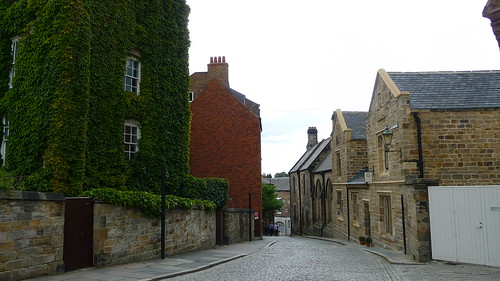Durham, N.C., Ends Experiment With ShotSpotter Detectors
Durham #Durham

(TNS) — Durham’s ShotSpotter experiment is over, city leaders decided Monday night.
The City Council voted 4-2 Monday night to reject a three-year contract extension with the gunfire-detection company.
“The data at this point is inconclusive,” Caballero said. “This is not a decision that I think is worth paying for.”
Williams said he has spoken with residents who have called for more police and was disappointed by the decision.
“The Black and brown community that I’ve talked to are asking for more police, but we’re short,” Williams said last month. Monday, he added that he would like to take a holistic approach to addressing the city’s crime, using ShotSpotter as a tool with other methods.
ShotSpotter — which rebranded last year as SoundThinking — notifies 911 operators of gunfire detected by audio sensors in 3 square miles in east and southeast Durham, where the city says a third of all gunshot wounds occur.
Police would send two patrol cars, without flashing lights or sirens, to investigate the alerts.
“ShotSpotter is a tool,” Police Chief Patrice Andrews said. “It’s just one more tool in our whole repertoire.”
But Durham residents have criticized the technology for encouraging overpolicing. Monday night, 19 people spoke against the program at the meeting, while one person expressed support for it.
“People are not interested in living in a police state,” said Maxine Eloi, one of the critics. “Let us continue to divest from the military-industrial complex and invest in this historic and vibrant community.
Contract extension
The pilot program had been on hold since December as city leaders awaited a Duke University analysis of the software.
The contract would have cost an additional $658,500, or $219,500 a year. The California company charged $225,500 to set up and run the first year.
Duke University analyzed data collected during Durham’s one-year pilot and found that 91% of alerts without a corresponding 911 call were dead ends. But they also found that in confirmed shootings, ShotSpotter helped police get to crime scenes faster, make more arrests, collect more evidence, and — in one case — help save a life.
That life saved was a metric supporters clung to.
“I’m sorry it was just one life,” Middleton said. “It was just one year. Who knows what would happen if it were on years from now?”
Duke researchers found no evidence that ShotSpotter reduced gun violence.
Activist Leslie St Dre, one of the opponents who spoke Monday, called it “racial-profiling technology.”
East Durham resident Taari Felice added that residents regularly see police in their neighborhood.
“We watch undercover Durham police officers pulling over and ransacking cars while Black and brown folks sit protesting from the grass,” Felice said, looking up to face the City Council . “I see these things happen a lot more often than I hear gunshots, which is interesting, because once again, I live in East Durham.”
East Durham resident and city employee Wilma Oliver was the only person to speak in favor of ShotSpotter. She would like see ShotSpotter used as one prong of Durham’s approach to gun violence.
“Just this Saturday I was asleep and woke up around 5 a.m. I heard shots fired,” Oliver said. “I did not call 911 because I was like, ‘I couldn’t tell where it is.’”
Cook, the council member, agreed with fellow council members Caballero, Baker and Rist that the data was “not compelling,” especially given the statistics on alerts that go unconfirmed.
The program has been controversial locally and in cities nationwide. Charlotte canceled its agreement with the company in 2016. Chicago is ending its contract with the company this year, after the city’s new mayor campaigned on a promise to do so.
© 2024 Raleigh News & Observer. Distributed by Tribune Content Agency, LLC.